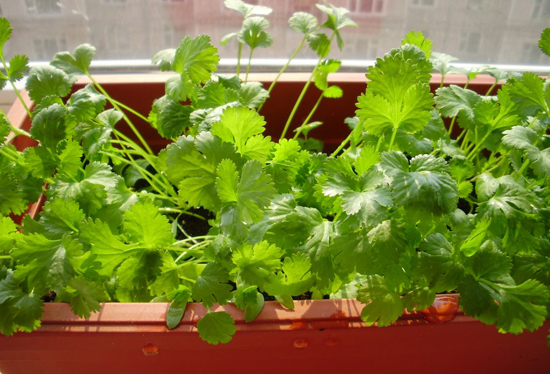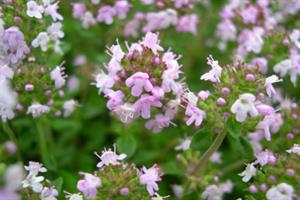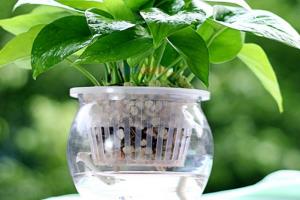How to grow coriander Teach you how to grow coriander
Coriander, also known as coriander, is a common ingredient, and it also has the effect of invigorating the stomach and digestion. It can be used as medicine, and it is also delicious to eat. Easy to plant, on the balcony at home, get a flowerpot to plant. So, do you know how to grow coriander? Next, follow in the editor's footsteps to learn how to grow coriander.

Coriander has strong cold tolerance, and 12 ℃-26 ℃ is the most suitable for planting in cold season. Its leaves are thin and tender, nutritious, fresh and delicious, and the growth period is short, with a yield of about 1500 kg per hectare. Generally do not have diseases and insect pests, and do not use pesticides to control diseases and insect pests, it can be said that they belong to pollution-free vegetables. Can be planted in spring, summer and autumn, but not resistant to high temperature, like temperature and cool, high-temperature season cultivation, easy to bolting, yield and quality are affected, should be mainly planted in autumn. Fields and gardens can be planted, and they can also be planted in front and behind the house.
1. Land selection, fertilization and soil preparation
Parsley has short growth period, strong main root, shallow root vegetable, soft bud, poor top soil ability and strong fertilizer absorption ability. Choose soil that is relatively fertile, good in water and fertilizer conservation, irrigated by drought, waterlogged, permeable, fertile and loose, and must not be planted repeatedly in soil that has not been planted with parsley for more than five years. Early tomatoes, cucumbers and beans can be used as the previous crop. After the previous harvest, the crop residue should be cleared in time to reduce the occurrence of diseases and insect pests. Deep ploughing and fine rake leveling, 3000-5000 kg of rotten farm manure per 0.1ha, the general width of the border is 1 meter, and the length of the border depends on topography, water source and water volume, which should be beneficial to planting management, so as to promote the absorption of roots and the healthy growth of plants.
Second, sowing seeds
Cilantro varieties can be divided into big leaf type and small leaf type. The leaflet has strong cold resistance and strong fragrance. It can be eaten raw, seasoned and pickled. It is suitable for planting in autumn. The seeds are hemispherical and covered with a pericarp. Rub the seeds apart before sowing to prevent slow germination and double seedlings, affecting the growth of a single plant. The suitable sowing time is in the middle of August, whether it is later than the end of August at the latest. The row spacing of strip sowing is 10-15 cm, the depth of trench is 5 cm, and the depth of trench is 4 cm. Both strip sowing and sowing are covered with 2-3 cm of soil. The seed consumption of 0.1 hectare is 6-6.5 kg. Step on it with your foot after sowing, and then water it to keep the soil moist to facilitate seedling emergence. At the same time, attention should also be paid to the phenomenon that the top of the seedling is not unearthed due to the soil consolidation before the coriander is unearthed, and the seedlings should be checked in time after sowing. If the phenomenon of soil consolidation is found when the seedlings are unearthed, spraying water to loosen the soil must be taken as soon as possible to help the seedlings unearthed and promote rapid growth.
Third, strengthen field management
In order to create a soft and comfortable growth environment and living conditions conducive to growth and development of coriander, and to achieve suitable temperature and humidity management, careful ploughing, loosening soil and weeding are the key.
1. Early thinning and timely fixing of seedlings
The seedlings were fixed when the seedlings grew to about 3 cm. Generally, ploughing, loosening the soil and weeding for 2-3 times throughout the growing period. For the first time, in the top soil of the seedlings, light handpick hoe or small Harrow was used to slightly break the soil and loosen the soil to eliminate the plate layer. At the same time, pull out the weeds unearthed early to facilitate the seedlings to thrive. The second time was carried out when the seedling height was 2-3 cm, and the strip sowing could be carried out with a small flat hoe to loosen the soil properly, combined with weeding. The third time is when the seedling height is 5-7 cm. In this way, early ploughing, loosening the soil and weeding can promote the vigorous growth of seedlings. After the leaves are sealed off the ground, no matter it is sowing or sowing, it will no longer be ploughing or loosening the soil, but just pull the grass several times purposefully.
two。 Topdressing and watering
Before setting the seedling, generally do not water, in order to control up and down, squatting seedling strong root. It is advisable to irrigate the stable seedling water once after the seedling is fixed, and the amount should not submerge the seedling. With the vigorous growth of seedlings, the water demand gradually increased, and the watering interval gradually shortened. Basically, there are 5-7 times of shallow water in the whole growth period. The first three water should be watered every 10 days or so, and the interval from the fourth water should be 6-7 days. Always keep the soil moist and control shallow water before harvest.
Combined with watering, topdressing should be carried out by stages, and the first water should be applied lightly to extract seedling fertilizer, about 10 kg per mu of urea, and then once urea, 10-12.5 kg, every 2-3 times of watering.
IV. Harvest and storage
Coriander can be harvested 30 days after sowing at high temperature and 40-60 days after sowing at low temperature. Harvest can be pulled out in between, but also can be harvested at one time. In addition to recent consumption, autumn cultivation can also be stored for consumption in winter and spring. The freezing method of burying soil is often used for storage. Before eating, take it out and put it in a place of 0 ℃-10 ℃ and thaw slowly. It can still remain fresh and tender, and the color and taste will not decrease.
The above is the way to grow coriander, it is not difficult to grow coriander, as long as fertilizing and watering on time, you can reap the fruits of labor. If you live in the city, would you like to try the taste of your own vegetables? Try it according to the editor's method.
Related
- Wuhan Hospital Iron Tree Blooming Result Was Instantly Frightened by the Gardener Master
- Which variety of camellia is the most fragrant and best? Which one do you like best?
- What is the small blue coat, the breeding methods and matters needing attention of the succulent plant
- Dormancy time and maintenance management of succulent plants during dormancy
- Minas succulent how to raise, Minas succulent plant pictures
- What are the varieties of winter succulent plants
- How to raise succulent plants in twelve rolls? let's take a look at some experience of breeding twelve rolls.
- Attention should be paid to water control for succulent plants during dormant period (winter and summer)
- Watering experience of twelve rolls of succulent plants
- Techniques for fertilizing succulent plants. An article will let you know how to fertilize succulent plants.



